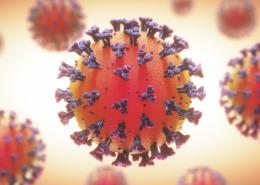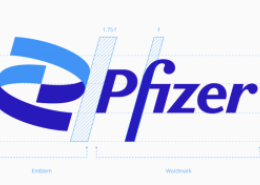AM‐Pharma publishes safety and pharmacokinetic data from Phase I recAP trial
Pharmacokinetic model determines optimal dose regimen for current Phase IIb recAP dose finding clinical study treating sepsis‐associated acute kidney injury
Bunnik, The Netherlands, 10 May 2016. AM‐Pharma B.V., a biopharmaceutical company focused on the development of recAP (recombinant human Alkaline Phosphatase), has published data from its Phase I trial of recAP, for the potential treatment of Acute Kidney Injury (AKI), in the journal of Clinical Pharmacokinetics. The lead study author is Peter Pickkers (Department of Intensive Care Medicine, Radboud University Medical Center, Nijmegen, The Netherlands). Using data from this Phase I trial and pharmacokinetic (PK) modelling, the optimal dosing regimen for the ongoing STOP‐AKI, adaptive Phase II study was predicted to consist of 1 hour infusions of 250, 500 and 1,000 U/kg recAP, once daily, for three consecutive days. The STOP‐AKI trial recently reported that it had completed its first stage, and an independent data monitoring committee had selected a single optimal dose for stage 2 of the trial, in a further 170 patients.
The range of regimens was established in a randomized, double‐blind, placebo‐controlled Phase I trial, where healthy volunteers received either a single dose of recAP (200, 500, 1,000 or 2,000 U/kg; n=33), or multiple doses of recAP (500 or 1,000 U/kg; n=18) comprised of single doses on three consecutive days all administered as a 1 hour intravenous infusion. Serum recAP concentrations, alkaline phosphatase (AP) activity levels, anti‐drug antibodies, and other safety and PK parameters were measured in the trial.
In the single dose group, peak blood concentrations of recAP and AP activity levels were reached at the end of the 1 hour infusion. AP activity levels increased 35‐200 fold over baseline endogenous AP activity, and remained 2.5 to 20 times higher after 24 hours. Sustained increases in blood AP activity were evident in the multiple dose groups, with AP levels in the highest dose group returning to baseline levels 10 days post final infusion. No serious adverse events were reported in any dose group.
“To treat Acute Kidney Injury with recAP we were looking to identify a treatment regimen that would provide sustained serum levels of recAP and corresponding increased alkaline phosphatase activity,” said Erik van den Berg, CEO of AM‐Pharma. “The regimens identified in this study are now under investigation in our ongoing STOP‐AKI recAP dose finding Phase IIb clinical study in AKI. Furthermore, the Phase I study provided strong safety data at clinically relevant dose levels, and strengthened our knowledge of recAP in a clinical setting.”
Company contact:
AM‐Pharma B.V.
Erik van den Berg (CEO)
+31 30 259 8838
Media contact:
80th Atom
Adam Michael
+44 1223 511338
+44 777 588 1813
Adam@80thAtom.com
Notes to Editors
About AM‐Pharmawww.am‐pharma.com
AM‐Pharma is a biopharmaceutical company focused on the preclinical and clinical development of recAP (recombinant Human Alkaline Phosphatase) as a treatment of Acute Kidney Injury (AKI), Ulcerative Colitis (UC), and Hypophosphatasia (HPP). Based on strong results from Phase II trials with bovine Alkaline Phosphatase in AKI and UC, AM‐Pharma developed an innovative recombinant form of human Alkaline Phosphatase (recAP), which is currently in Phase II development for sepsis‐associated AKI. In May 2015, AM‐Pharma signed a deal with Pfizer, which made an upfront payment of $87.5 million for a minority equity interest, and exclusive option to acquire the Company, with additional potential payments of up to $512.5 million upon option exercise and potential launch of any product that may result from the agreement.
About Acute Kidney Injury
Acute Kidney Injury (AKI) involves inflammatory processes in the kidney which can lead to complete loss of renal function. Hospital‐acquired AKI affects annually around 3 million patients in Europe, the US and Japan, and is associated with mortality in roughly 700,000 patients. It occurs in as many as 4% of hospital admissions and 40% of critical care admissions. Depending on the severity and cause of renal injury, mortality ranges from 10% to as high as 70%. In the US alone, hospitals spend around $10 billion each year on managing this major medical problem. The most important causes of AKI are sepsis, cardiovascular surgery, exposure to nephrotoxic drugs and trauma. AKI patients that need dialysis have the worst prognosis. Currently the only treatment option is dialysis and supportive care. No drugs are approved to treat this condition. Typically these patients are treated in Intensive Care, often with support of nephrologists.1,2,3
About recAP
AM‐Pharma’s therapeutic candidate, recAP (recombinant Alkaline Phosphatase), is a proprietary recombinant human AP constructed from two naturally occurring human isoforms of the AP enzyme, which is highly stable and active. It is in Phase II development for the treatment of AKI, with the potential to be developed for HPP. An oral formulation has been developed for the treatment of UC. The enzyme is produced by cGMP manufacture for preclinical and clinical trial supply and commercialization.
1 Murugan R. and Kellum J.A., (2011) Nat Rev Nephrol. Vol 7: 209-217
2 Heung M. and Chawla L., (2014) Nephron Clin Pract. Vol 127: 30-34
3 Chertow et al., (2005) J Am Soc Nephrol. Vol 16: 3365-3370 Soc Nephrol. Vol 16: 3365-3370
– ENDS –








